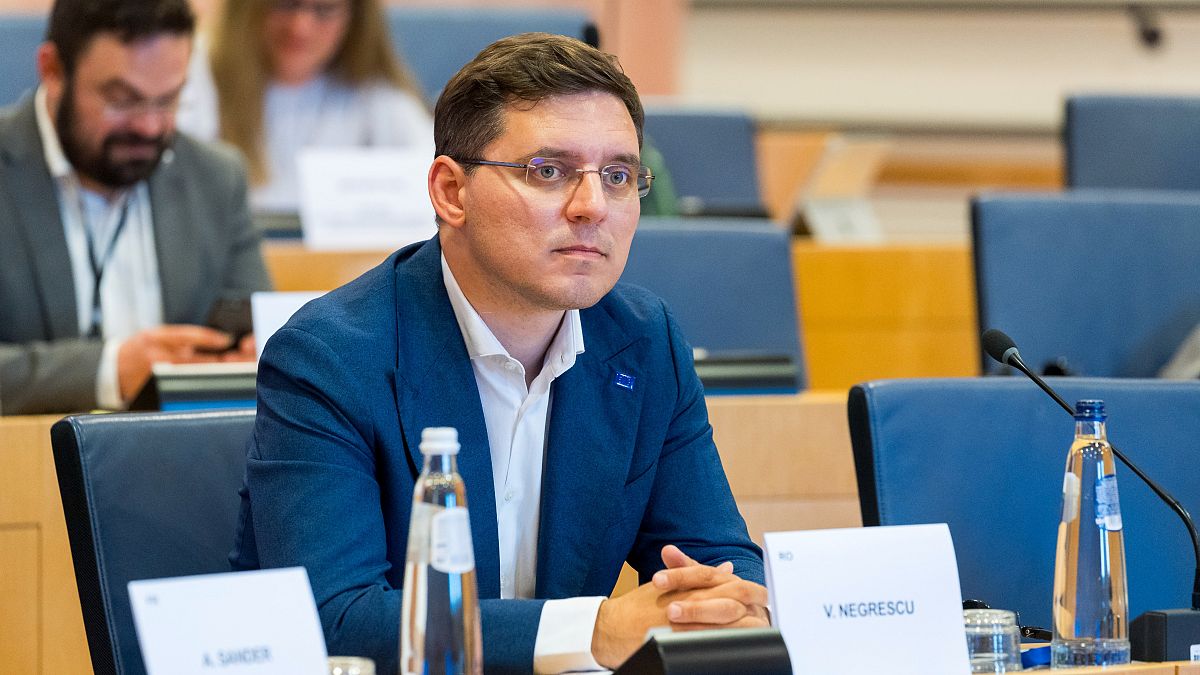Ursula von der Leyen, the President of the European Commission, is facing a challenge as she has just six confirmed women commissioners to serve from November. This headache has been heightened by the nomination of Victor Negrescu, the socialist Parliament Vice-President, to be Romania’s next commissioner. This nomination brings the tally of known candidates to serve in the EU executive to 21 out of the total 27 member states. However, with just six confirmed women nominees, Ursula von der Leyen’s commitment to gender balance in her leadership is being put to the test.
Victor Negrescu, who is Brussels-educated and previously served as the EU affairs minister for Romania, is expected to be allocated a policy area by Ursula von der Leyen before confirmation hearings at the European Parliament. In July, Negrescu expressed optimism about securing a portfolio such as economics, the internal market, competitiveness, and competition, highlighting the competition among capitals to secure key roles in which Brussels holds significant power. Negrescu, a member of Ciolacu’s Socialist Party, resigned as Romania’s EU affairs minister in 2018 due to concerns over corruption and judicial independence in the country. His background in journalism and education, along with his experience as an MEP, make him a strong candidate for the role.
Other rumored candidates for Romania’s commissioner position included MEPs Siegfried Mureşan from the center-right National Liberal party and socialist Mihai Tudose. Additionally, Romanian President Klaus Iohannis was previously considered for the role, as well as for the top job at NATO. Speculation now suggests that he may be seeking to become Brussels’ High Representative for Ukraine. The previous Romanian representative at the Commission, Adina Vălean, resigned to become an MEP in July. Member states agreed that her position did not need to be filled during the short four-month hiatus.
Overall, Ursula von der Leyen faces a challenging task in ensuring gender balance among commissioners in the European Commission. The nomination of Victor Negrescu as Romania’s next commissioner adds to the complexity of the situation, as it brings the total number of known candidates to 21. Negrescu’s background and experience make him a strong contender for a key role in the EU executive, with potential portfolios in areas such as economics and competition. With just six confirmed women nominees, Ursula von der Leyen’s commitment to gender balance will be put to the test in the upcoming confirmation hearings at the European Parliament.
As Ursula von der Leyen meets with Romanian Prime Minister Marcel Ciolacu to discuss candidate names by the end of August, negotiations for the allocation of policy areas to nominees will be closely watched. Victor Negrescu’s potential role in the EU executive, along with the competition among capitals to secure key portfolios, will be a key focus in the coming months. With other rumored candidates and speculations surrounding Romanian President Klaus Iohannis, the composition of the European Commission is still evolving. The departure of Adina Vălean and the decision not to immediately fill her position have added a layer of complexity to the process.
In conclusion, Ursula von der Leyen’s efforts to ensure gender balance and select competent commissioners for the European Commission are facing challenges as the nomination process unfolds. The appointment of Victor Negrescu as Romania’s next commissioner adds another dimension to the process, with negotiations and competition among capitals intensifying. The upcoming confirmation hearings at the European Parliament will be crucial in determining the final composition of the EU executive and the allocation of key portfolios. As member states and candidates vie for influential roles, Ursula von der Leyen’s leadership and commitment to gender balance will be put to the test in the coming months.











